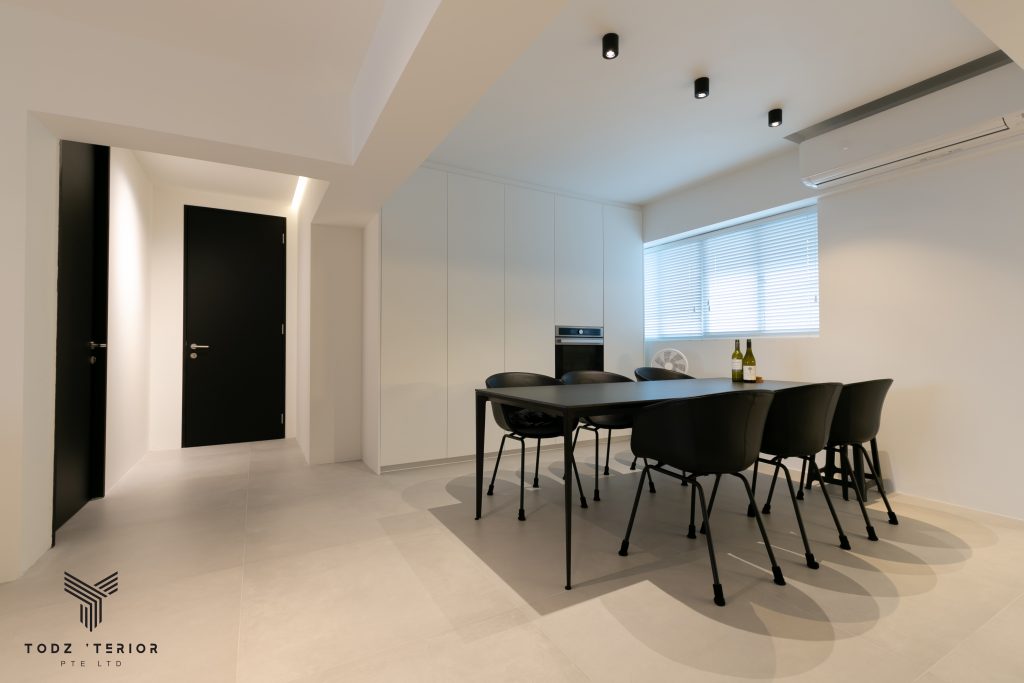When it’s time to renovate your home, you might be so eager to get started that you don’t think of what you’ll need to do in advance, including hiring a contractor. A home renovation contractor can help you with everything from minor repairs to extensive upgrades, and if the work is done well, these improvements will add value to your home.
In This Article
ToggleYou can save money by doing some of the work on your own, such as painting or laying tile. Some tasks require special skills such as electrical wiring or plumbing-if not, consider hiring people with those skills to do the work for you. If you’re not comfortable doing it yourself, hire an experienced contractor who can minimize problems and ensure your renovation comes out just as you envisioned.
But when you don’t hire a contractor in advance, you could find yourself suddenly up the creek when it comes to fixing your home. Here are some things to consider doing before starting renovation work on your home.

Get several quotes.
To avoid paying more than you should, it’s a good idea to get at least three quotes from different contractors. Be sure the contractor you hire is licensed and insured for your protection as well as theirs. Look at your local newspaper, the Internet and ask your friends for references. Reputable contractors should be happy to provide you with the names of satisfied customers.
If something goes wrong at the end of the project and you’re not covered by their insurance, you could be on the hook for their mistake. Contracts are important. It’s a good idea to hire a contractor who is willing to sign a contract with you so both of you know what work will be done when it will start and finish, and how much it will cost.
Get detailed information in writing. If you want a particular feature in your new kitchen, make sure it’s included in the contract and specify exactly what you want. If the contractor tells you it can’t be done, ask them to write out exactly why they think so and include it in the contract. A contract spells out all details of the job, neither one of you will come out ahead.
Contract agreement.
Make sure you sign a written contract with the contractor; if something goes wrong later, it could be difficult to resolve any problems without one. The contract should include details on the work you want to be done, how it will be accomplished, the cost, and the time limit. It should also include a description of any materials that will be used to complete the job.
Signing a contract with an unlicensed contractor could leave you unprotected if something goes wrong. However, contractors must by law only accept cash or checks at the end of their jobs, so make sure you only pay the contractor after they’ve done what was agreed upon in your contract.
Decide whether you want to finance your project. If you need financing, check out the options at your local bank or ask for recommendations from friends. However, be prepared with a down payment of around 20 percent of the total cost of the job. Be sure to request references from the contractor. They should include names and telephone numbers, as well as details about how happy their clients have been with them.

Don’t forget your HOA.
In some housing communities, there are rules about how a home can be renovated or painted. In some cases, the association may require you to get approval from the board before you begin work to ensure it meets community standards. Don’t forget that you will need to get a permit for many home renovation projects, including electrical and plumbing work.
Regardless of whether you are using a contractor or doing the work yourself, it is important to always protect your investment. Investing some time upfront to plan for your renovation project could save you from a lot of problems down the road. And if things don’t go as planned, you’ll be more prepared to handle the unexpected.
There could also be restrictions on the types of fences and exterior appliances you’re allowed to install, so make sure you check with your HOA before starting work. If you find yourself in need of financial assistance, the Bank offers a variety of construction loans to fit your needs.
General contractors vs. subcontractors.
Contractors who work on large projects for commercial or other larger clients are commonly known as general contractors. They’re usually responsible for overseeing all aspects of the project, from planning and design through construction and completion, whereas subcontractors are hired by general contractors to help complete specific parts of the project under the supervision of the general contractor.
So if you need an electrician, carpenter, or plumber, they’ll be subcontractors rather than being employed directly by the general contractor. You’ll pay their costs in addition to the general contractor’s fee, which would include labor and materials. By law, a general contractor is required to be licensed and insured.
Subcontractors are not required to have this paperwork on file with the state but might have it if they work on jobs that require licenses. A general contractor will usually take care of all permits, inspections, and labor law compliance, so subcontracting is a good way to get additional help without having to manage multiple contractors yourself.
Qualifications for the State Contractor License Board.
All contractors are required to be licensed in order to do business in the state of Singapore. But if you’re going to hire a general contractor, make sure they have a valid State Contractor License. Contractors who have been licensed for less than three years must be supervised by a general contractor with more experience.
A qualified contractor will also be bonded and insured. But if you hire a subcontractor rather than a general contractor, they’re not required to have a State Contractor License. Before you sign a contract, be sure to ask each contractor whether they have a license and if it’s in good standing.
If you decide that hiring a subcontractor is the right choice for your project, find out what training and experience they have so you don’t get stuck with less-than-professional work. You don’t want to end up paying for shoddy craftsmanship or lack of skill, so always ask the subcontractor about the quality of their work and make sure they have a written warranty for your project.
To qualify for a license, an applicant must obtain an Application for Contractors License from the Board.
All applicants must also complete some supplemental forms. The application and supplemental forms must be completed in full, submitted to the Board, and accompanied by all appropriate fees ($300 for a single-trade license, $500 for a general license).
If you need help, we would gladly help to guide you through the process of selecting a contractor. If your project is too big for you to handle on your own, hiring a general contractor is the best way to get it done. Once you’ve chosen the right one for you, mark out your plans and let them work their magic.
For professional help finding the right contractors for your project or getting started with applying for your license, please contact us. Thanks for reading this article. Please feel free to leave a comment and share it with your friends and family.

